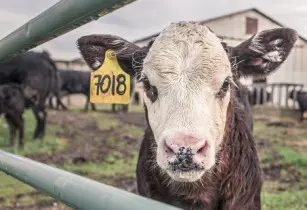Dr Andrew Morgan, chief scientist at DuPont Nutrition and Health, spoke about the emerging science of microbiome and its potential in providing solutions to address antimicrobial resistance (AMR) at the AgriVision 2017 conference, held from 13 to 15 June 2017, in Noordwijk aan Zee, the Netherlands
Morgan’s presentation focused on the global challenge of reducing antibiotic usage, and explored how microbiome can provide potential solutions including probiotics, prebiotics and enzymes.
He commented, “It is important to understand how antibiotics affect such an important microbial ecosystem and to find ways to mitigate any negative consequences including anti-microbial resistance.”
“There are tens of trillions of microbial cells, more than 1,000 species of microbes encoding millions of genes in the human microbiome and it is apparent that it plays a very important role in our health,” he said.
He further added, “The future of microbial science as an answer for AMR is promising, but it is still early days. It will require a multi-stakeholder collaborative approach – the kind we’ve seen between DuPont and Nutreco – to find solutions to tackle this important global challenge.”
In his presentation, he explained that while the use of antibiotics has benefits, its effect on beneficial microbes in both human and animal gut microbiome could result long-term problems.
He cited a study-result showing that a probiotic can effectively reduce the gastrointestinal disorders caused by the use of antibiotics, and improve digestibility and promote animal gut health.
Morgan also highlighted the potential of microbiome science to yield future solutions to address AMR in livestock production.
Viggo Halseth, chief innovation officer at Nutreco, the organiser of the show, pointed out, “Promoting animal gut health is a focus area for Nutreco in finding nutritional solutions to combat AMR. We are eager to learn where microbiome science could help us in that respect.”





